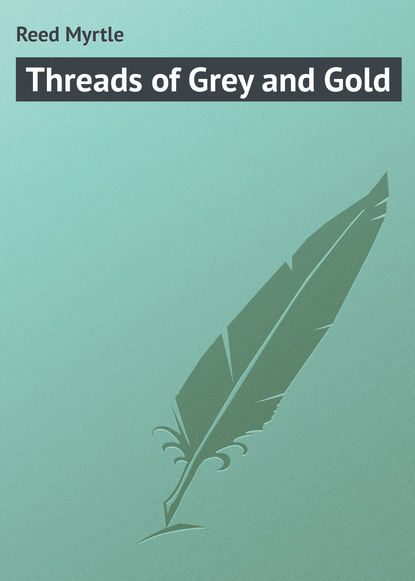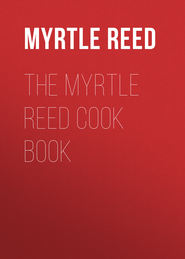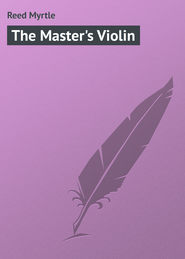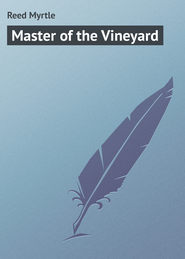По всем вопросам обращайтесь на: info@litportal.ru
(©) 2003-2024.
✖
Threads of Grey and Gold
Настройки чтения
Размер шрифта
Высота строк
Поля
Every one knows that a woman needs neither beauty, talent, nor money to win the deepest and sincerest love that man is capable of giving.
Single life is, with rare exceptions, a matter of choice and not of necessity; and while it is true that a happy married life is the happiest position for either man or woman, there are many things which are infinitely worse than being an old maid, and chiefest among these is marrying the wrong man!
The modern woman looks her future squarely in the face and decides according to her best light whether her happiness depends upon spinsterhood or matrimony. This decision is of course influenced very largely by the quality of her chances in either direction, but if the one whom she fully believes to be the right man comes along, he is likely to be able to overcome strong objections to the married state. If love comes to her from the right source, she takes it gladly; otherwise she bravely goes her way alone, often showing the world that some of the most mother-hearted women are not really mothers. Think of the magnificent solitude of such women as Florence Nightingale and our own splendid Frances Willard! Who shall say that these, and thousands of others of earth’s grandest souls, were not better for their single-heartedness in the service of humanity?
A writer in a leading journal recently said: “The fact that a woman remains single is a tribute to her perception. She gains an added dignity from being hard to suit.”
This, from the pen of a man, is somewhat of a revelation, in the light of various masculine criticisms concerning superfluous women. No woman is superfluous. God made her, and put her into this world to help her fellow-beings. There is a little niche somewhere which she, and she alone, can fill. She finds her own completeness in rounding out the lives of others.
It has been said that the average man may be piloted through life by one woman, but it must be admitted that several of him need somewhere near a dozen of the fair sex to wait upon him at the same time. His wife and mother are kept “hustling,” while his “sisters and his aunts” are likely to be “on the keen jump” from the time his lordship enters the house until he leaves it!
But to return to the “superfluous woman,” – although we cannot literally return to her because she does not exist. Of the “old maid” of to-day, it is safe to say that she has her allotted plane of usefulness. She isn’t the type our newspaper brethren delight to caricature. She doesn’t dwell altogether upon the subject of “woman’s sphere,” which, by the way, comes very near being the plane of the earth’s sphere, and she need not, for her position is now well recognised.
She doesn’t wear corkscrew curls and hideous reform garments. She is a dainty, feminine, broad-minded woman, and a charming companion. Men are her friends, and often her lovers, in her old age as well as in her youth.
Every old maid has her love story, a little romance that makes her heart young again as she dreams it over in the firelight, and it calls a happy smile to the faded face.
Or, perhaps, it is the old, sad story of a faithless lover, or a happiness spoiled by gossips – or it may be the scarcely less sad story of love and death.
Ibsen makes two of his characters, a young man and woman who love each other, part voluntarily on the top of a high mountain in order that they may be enabled to keep their high ideals and uplifting love for each other.
So the old maid keeps her ideals, not through fulfilment, but through memory, and she is far happier than many a woman who finds her ideal surprisingly and disagreeably real.
The bachelor girl and the bachelor man are much on the increase. Marriage is not in itself a failure, but the people who enter unwisely into this solemn covenant too often are not only failures, but bitter disappointments to those who love them best.
Life for men and women means the highest usefulness and happiness, for the terms are synonymous, neither being able to exist without the other.
The model spinster of to-day is philanthropic. She is connected, not with innumerable charities, but with a few well-chosen ones. She gives freely of her time and money in many ways, where her left hand scarcely knoweth what her right doeth, and the record of her good works is not found in the chronicles of the world.
She is literary, musical, or artistic. She is a devoted and loyal club member, and is well informed on the leading topics of the day, while the resources of her well-balanced mind are always at the service of her friends.
And when all is said and done, the highest and truest life is within the reach of us all. Doing well whatever is given us to do will keep us all busy, and married or single, no woman has a right to be idle. The old maid may be womanly and mother-hearted as well as the wife and mother.
The Spinster’s Rubaiyat
I
Wake! For the hour of hope will soon take flight
And on your form and features leave a blight;
Since Time, who heals full many an open wound,
More oft than not is impolite.
II
Before my relatives began to chide,
Methought the voice of conscience said inside:
“Why should you want a husband, when you have
A cat who seldom will at home abide?”
III
And, when the evening breeze comes in the door,
The lamp smokes like a chimney, only more;
And yet the deacon of the church
Is telling every one my parrot swore.
IV
Behold, my aunt into my years inquires,
Then swiftly with my parents she conspires,
And in the family record changes dates —
In that same book that says all men are liars.
V
Come, fill the cup and let the kettle sing!
What though upon my finger gleams no ring,
Save that cheap turquoise that I bought myself?
The coming years a gladsome change may bring.
VI
Here, minion, fill the steaming cup that clears
The skin I will not have exposed to jeers,
And rub this wrinkle vigorously until
The maddening crow’s-foot wholly disappears.
VII
And let me don some artificial bloom,
And turn the lamps down low, and make a gloom
That spreads from library to hall and stair;
Thus do I look my best – but ah, for whom?
The Rights of Dogs
We hear a great deal about the “rights of men” and still more, perhaps, about the “rights of women,” but few stop to consider those which properly belong to the friend and companion of both – the dog.
According to our municipal code, a dog must be muzzled from June 1st to September 30th. The wise men who framed this measure either did not know, or did not stop to consider, that a dog perspires and “cools off” only at his mouth.
Man and the horse have tiny pores distributed all over the body, but in the dog they are found only in the tongue.
Any one who has had a fever need not be told what happened when these pores ceased to act; what, then, must be the sufferings of a dog on a hot day, when, securely muzzled, he takes his daily exercise?
Even on the coolest days, the barbarous muzzle will fret a thoroughbred almost to insanity, unless, indeed, he has brains to free himself, as did a brilliant Irish setter which we once knew. This wise dog would run far ahead of his human guardian, and with the help of his forepaws slip the strap over his slender head, then hide the offending muzzle in the gutter, and race onward again. When the loss was discovered, it was far too late to remedy it by any search that could be instituted.
And still, without this uncomfortable encumbrance, it is unsafe for any valuable dog to be seen, even on his own doorsteps, for the “dog-catcher” is ever on the look-out for blue-blooded victims.











